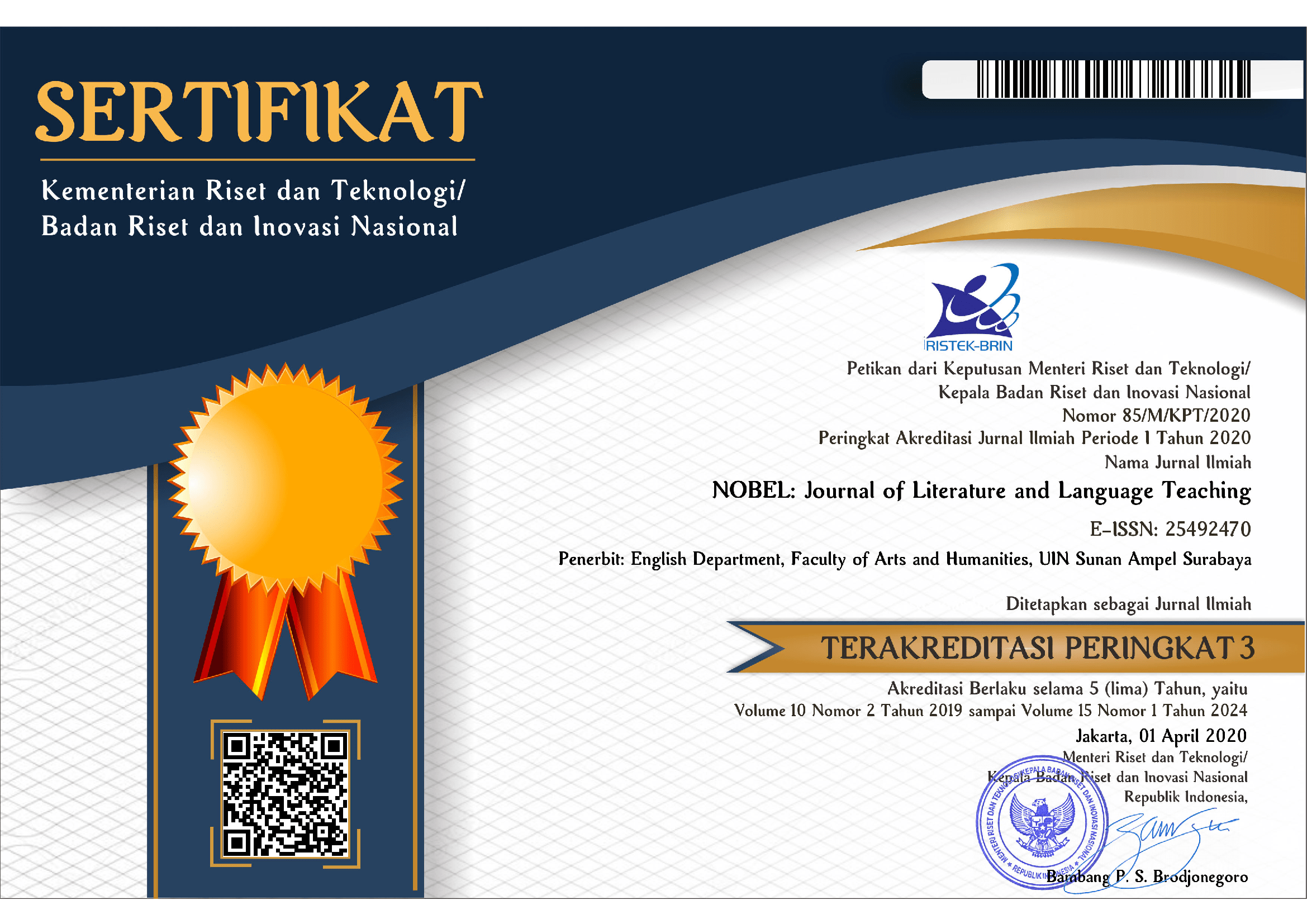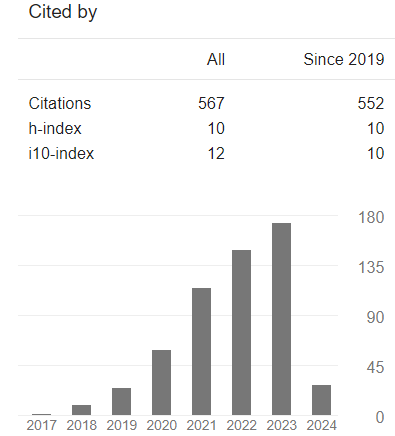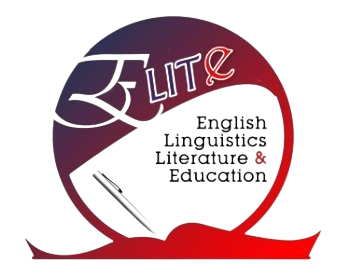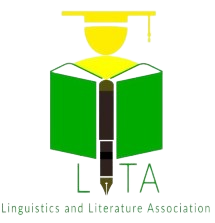Directions for Indonesian Language Policy in Education: Towards A Translingual Perspective
DOI:
https://doi.org/10.15642/NOBEL.2022.13.2.271-292Keywords:
Indonesia, translanguaging, language policy, language attitudes, decolonizationAbstract
This study overviews literature regarding the development of Indonesian, language endangerment, language attitudes, and ideologies, as well as emerging teaching methodologies to provide the context of the current challenges facing Indonesia’s sociolinguistic situation. The establishment of Bahasa Indonesia as the national language helped unite the country but, at the same time, created new challenges for addressing linguistic diversity. The dissemination of English education has complicated the situation further and has been associated with exacerbating inequalities. These inequalities have not only had consequences for linguistic diversity but also for access to employment and education. Language policies continue to treat language as static rather than dynamic processes which involve one’s communicative repertoire. We argue that while some language scholars studying Indonesia have begun to acknowledge the advantages of translingual/multilingual education, there still remains under-addressed obstacles to its successful implementation and the risk of co-option for ulterior purposes. We conclude that advocacy for language policy in Indonesia should be a part of a broader effort to address the needs of marginalized communities and harness students’ diverse and dynamic linguistic repertoires to improve the quality of learning and inclusivity in the classroom
Downloads
References
Anderbeck, K. (2015). Portraits of language vitality in the languages of Indonesia. In I. W. Arka, N. L. N. S. Malini, & I. A. A. Puspani (Eds.), Language documentation and cultural practices in the Austronesian world (pp. 19–47). Pacific Linguistics.
Anderson, B. (2006). Imagined communities: Reflections on the origin and spread of nationalism. Verso.
Arps, B. (2010). Terwujudnya bahasa Using di Banyuwangi dan peranan media elektronik di dalamnya (selayang pandang, 1970–2009). In Mikihiro Moriyama & M. Budiman (Eds.), Geliat bahasa selaras zaman: perubahan bahasa-bahasa di Indonesia pasca-Orde Baru (pp. 225–248). Kepustakaan Populer Gramedia.
Aspinall, E. (2018). Democratization: Travails and achievements. In Routledge Handbook of Contemporary Indonesia (pp. 83–94). Routledge.
Badan Pemeriksa Keuangan Republik Indonesia. (2009). Undang-undang (UU) tentang Bendera,
Bahasa, dan Lambang Negara, serta Lagu Kebangsaan (No. 24). LN. 2009/ No.109 , TLN NO. 5035, LL SETNEG : 29 HLM. https://peraturan.bpk.go.id/Home/Details/38661/uu-no-24-tahun-2009
Bening, E. (2020). Malas Belajar Bahasa Inggris Tapi Rajin Ngatain Sok Inggris—#KomentarNetizen 10. https://www.youtube.com/watch?v=6--Bp9D8EAg
Bjork, C., & Raihani, R. (2018). Moving towards the stability: Development of the Indonesian education system. In Routledge handbook of contemporary Indonesia (pp. 68–79). Routledge.
Bourdieu, P. (1991). Language and symbolic power. Harvard University Press.
Cahyani, H., de Courcy, M., & Barnett, J. (2018). Teachers’ code-switching in bilingual classrooms: Exploring pedagogical and sociocultural functions. International Journal of Bilingual Education and Bilingualism, 21(4), 465–479. https://doi.org/10.1080/13670050.2016.1189509
Canagarajah, S. (2012). Translingual practice: Global Englishes and cosmopolitan relations. Routledge. https://doi.org/10.4324/9780203073889
Canagarajah, S. (2017). Translingual practices and neoliberal policies. In Translingual practices and neoliberal policies (pp. 1–66). Springer, Cham. https://doi.org/10.1007/978-3-319-41243-6_1
CNN Indonesia. (2018). Fenomena campur aduk “Bahasa anak Jaksel.” CNN Indonesia. https://www.cnnindonesia.com/gaya-hidup/20180919154522-282-331461/fenomena-campur-aduk-bahasa-anak-jaksel
Cohn, A. C., & Ravindranath, M. (2014). Local languages in Indonesia: Language maintenance or language shift. Linguistik Indonesia, 32(2), 131–148. https://doi.org/10.26499/li.v32i2.22
Conners, T. J. (2008). Tengger Javanese. Yale University.
Costa, J. (2013). Language endangerment and revitalisation as elements of regimes of truth: Shifting terminology to shift perspective. Journal of Multilingual and Multicultural Development, 34(4), 317–331. https://doi.org/10.1080/01434632.2013.794807
Damayanti, I. L. (2014). Gender construction in visual images in textbooks for primary school students. Indonesian Journal of Applied Linguistics, 3(2), 100–116. https://doi.org/10.17509/ijal.v3i2.272
Dewi, A. (2017). The English(es) to teach after study and life in Australia: a study of Indonesian English language educators. Asian Englishes, 19(2), 128–147. https://doi.org/10.1080/13488678.2017.1279762
Djenar, D. N. (2008). On the development of a colloquial writing style: Examining the language of Indonesian teen literature. Bijdragen Tot de Taal-, Land- En Volkenkunde / Journal of the Humanities and Social Sciences of Southeast Asia, 164(2), 238–268. https://doi.org/10.1163/22134379-90003658
Duchêne, A., & Heller, M. (Ed.). (2012). Language in late capitalism: Pride and profit. Routledge.
Ewing, M. C. (2014). Language endangerment in Indonesia. International Journal of Education, 8(1), 12–22. https://www.learntechlib.org/p/208949/
Farhana, N. (2021). SOK INGGRIS? Maybe you are. https://www.youtube.com/watch?v=4VrxPXV06oM&t=121s
Farisi, B. A. (2020). Di-bully “Sok Inggris”, Boy William sebut juga ingin pukul diri sendiri. https://www.kompas.com/hype/read/2020/11/30/134742766/di-bully-sok-inggris-boy-william-sebut-juga-ingin-pukul-diri-sendiri?page=all
Flores, N. (2013a). The unexamined relationship between neoliberalism and plurilingualism: A cautionary tale. TESOL Quarterly, 47(3), 500–520. https://doi.org/10.1002/tesq.114
Flores, N. (2013b). Silencing the subaltern: Nation-state/colonial governmentality and bilingual education in the United States. Critical Inquiry in Language Studies, 10(4), 263–287. https://doi.org/10.1080/15427587.2013.846210
Flores, N., & Rosa, J. (2015). Undoing appropriateness: Raciolinguistic ideologies and language diversity in education. Harvard Educational Review, 85(2), 149–171. https://doi.org/10.17763/0017-8055.85.2.149
García, O. (2009). Education, multilingualism and translanguaging in the 21st century. In T. Skutnabb-Kangas, R. Phillipson, A. K. Mohanty, & M. Panda (Eds.), Social Justice through Multilingual Education (pp. 140–158). Multilingual Matters. https://doi.org/10.21832/9781847691910-011
García, O., & Wei, L. (2014). Language, bilingualism and education. In Translanguaging: Language, Bilingualism and Education (pp. 46–62). Palgrave Pivot. https://doi.org/10.1057/9781137385765_4
Harsanti, H. R., & Manara, C. (2021). “I have to teach The ‘English’ English”: Native-speakerism ideology among the English teachers. Indonesian Journal of Applied Linguistics, 11(2), 330–340. https://doi.org/10.17509/ijal.v11i2.26379
Hermawan, B., & Lia, N. (2012). Traces of cultures in English textbooks for primary education. Indonesian Journal of Applied Linguistics, 1(2), 49–61. https://doi.org/10.17509/ijal.v1i2.84
Heryanto, A. (2006). Then there were languages: Bahasa Indonesia was one among many. In Disinventing and Reconstituting Languages (pp. 42–61). Multilingual Matters. https://doi.org/10.21832/9781853599255-004
Higgins, C. (2003). “Ownership” of English in the outer circle: An alternative to the NS-NNS dichotomy. TESOL Quarterly, 37(4), 615–644. https://doi.org/10.2307/3588215
Higgins, C. (2009). English as a local language: Post-colonial identities and multilingual practices. Multilingual Matters. https://doi.org/10.21832/9781847691828
Hikmatika, N. I. (2018). Cuitan kocak netizen soal gaya anak Jaksel. https://inet.detik.com/cyberlife/d-4197222/cuitan-kocak-netizen-soal-gaya-anak-jaksel
Inoue, M. (2003). The listening subject of Japanese modernity and his auditory double: Citing, sighting, and siting the modern Japanese woman. Cultural Anthropology, 18(2), 156–193. https://doi.org/10.1525/can.2003.18.2.156
Izzati, F. (2021). Jangan sok Inggris. YouTube. https://encrypted-vtbn0.gstatic.com/video?q=tbn:ANd9GcSCwFySJ7liQZhubx-zwesCkjaidHBQh1pKBA
Jaspers, J. (2018). The transformative limits of translanguaging. Language & Communication, 58, 1–10. https://doi.org/10.1016/j.langcom.2017.12.001
Johnson, D. G., Mattan, B. D., Flores, N., Lauharatanahirun, N., & Falk, E. B. (2022). Social-cognitive and affective antecedents of code switching and the consequences of linguistic racism for black people and people of color. Affective Science, 3(1), 5–13. https://doi.org/10.1007/s42761-021-00072-8
Jonata, W. (2018). Prilly Latuconsina ladeni kritik netizen yang bilang dirinya sok Inggris. Tribunnews.Com. https://www.tribunnews.com/seleb/2018/08/10/prilly-latuconsina-ladeni-kritik-netizen-yang-bilang-dirinya-sok-inggris
Kachru, B. B., Kachru, Y., & Nelson, C. L. (2006). Introduction: The world of world Englishes. In B. B.
Kachru, Y. Kachru, & C. L. Nelson (Eds.), The handbook of world Englishes (pp. 1–16). Blackwell Publishing Ltd. https://doi.org/10.1002/9780470757598
Kakisina, J. (2021). Bahasa slang anak-anak muda Jaksel. Kompasiana.Com. https://www.kompasiana.com/jeniferkakisina2377/61813cfb8777f608ff616402/bahasa-slang-anak-anak-muda-jaksel
Kubota, R. (2016). The multi/plural turn, postcolonial theory, and neoliberal multiculturalism: Complicities and implications for applied linguistics. Applied Linguistics, 37(4), 474–494. https://doi.org/10.1093/applin/amu045
Kubota, R., & Fujimoto, D. (2013). Racialized native speakers: Voices of Japanese American English language professionals. In Native-Speakerism in Japan (pp. 196–206). Multilingual Matters. https://doi.org/10.21832/9781847698704-018
Lamb, M., & Coleman, H. (2008). Literacy in English and the transformation of self and society in post-Soeharto Indonesia. International Journal of Bilingual Education and Bilingualism, 11(2), 189–205. https://doi.org/10.2167/beb493.0
Makoni, S., & Mashiri, P. (2006). Critical historiography: Does language planning in Africa need a construct of language as part of its theoretical apparatus? In Disinventing and Reconstituting Languages (pp. 62–89). Multilingual Matters. https://doi.org/10.21832/9781853599255-005
Makoni, S., & Pennycook, A. (Eds.). (2006). Disinventing and Reconstituting Languages. Multilingual Matters. https://doi.org/10.21832/9781853599255
Manara, C. (2014). “That’s what worries me”: Tensions in English language education in today’s Indonesia. International Journal of Innovation in English Language Teaching and Research, 3(1), 21–35. https://www.proquest.com/openview/76a9230651c64a3e33212fa859bd043d/1?pq-origsite=gscholar&cbl=2034865
Martin, N. (2017). Bahasa gado-gado in Indonesian popular texts: Expanding indonesian identities through code-switching with English [The University of Wisconsin-Madison]. https://www.proquest.com/openview/ac8abcdc14545e6d8c94be80c306c6d2/1?pq-origsite=gscholar&cbl=18750
Mena, M., & García, O. (2021). ‘Converse racialization’ and ‘un/marking’ language: The making of a bilingual university in a neoliberal world. Language in Society, 50(3), 343–364. https://doi.org/10.1017/S0047404520000330
Mendoza-Denton, N. (2011). The semiotic Hitchhiker’s guide to creaky voice: Circulation and gendered hardcore in a Chicana/o gang persona. Journal of Linguistic Anthropology, 21(2), 261–280. https://doi.org/10.1111/j.1548-1395.2011.01110.x
Nurdiarsih, F. (2018). Kolom bahasa: Gaya bahasa anak Jaksel, cuma tren atau keruwetan berpikir? Liputan6.Com. https://www.liputan6.com/citizen6/read/3643014/kolom-bahasa-gaya-bahasa-anak-jaksel-cuma-tren-atau-keruwetan-berpikir
Nurhayati, E. (2013). Strategi pemertahanan bahasa Jawa di propinsi Daerah Istimewa Yogyakarta. LITERA, 12(1), 159–166. https://doi.org/10.21831/ltr.v12i01.1338
Otheguy, R., García, O., & Reid, W. (2015). Clarifying translanguaging and deconstructing named languages: A perspective from linguistics. Applied Linguistics Review, 6(3), 281–307. https://doi.org/10.1515/applirev-2015-0014
Otheguy, R., & Stern, N. (2011). On so-called Spanglish. International Journal of Bilingualism, 5(1), 85–100. https://doi.org/10.1177/1367006910379298
Pennycook, A. (2001). Critical applied linguistics: A critical introduction. Routledge.
Pennycook, A., & Makoni, S. (2019). Innovations and challenges in applied linguistics from the global south. Routledge.
Piller, I., & Cho, J. (2013). Neoliberalism as language policy. Language in Society, 42(1), 23–44. https://doi.org/10.1017/S0047404512000887
Quinn, G. (2012). Emerging from dire straits: Post-New Order developments in Javanese language and literature. In K. Foulcher, M. Moriyama, & M. Budiman (Eds.), Words in Motion. Language and Discourse in Post-New Order Indonesia. National University of Singapore Press.
Rasman, R. (2018). To translanguage or not translanguage? The multilingual practice in an Indonesian EFL classroom. Indonesian Journal of Applied Linguistics, 7(3), 687–694. https://doi.org/10.17509/ijal.v7i3.9819
Reyes, A. (2017a). Ontology of fake: Discerning the Philippine elite. Signs and Society, 5(S1), S100–S127. https://doi.org/10.1086/690067
Reyes, A. (2017b). Inventing postcolonial elites: Race, language, mix, excess. Journal of Linguistic Anthropology, 27(2), 210–231. https://doi.org/10.1111/jola.12156
Rohmah, Z. (2005). English as a global language: Its historical past and its future. Bahasa Dan Seni, 33(1), 106–117. https://sastra.um.ac.id/wp-content/uploads/2009/10/English-as-a-Global-Language-Its-Historical-Past-and-Its-Future-Zuliati-Rohmah.pdf
Sari, N. T. A. (2011). Visible boys, invisible girls: The representation of gender in ‘Learn English with Tito.’ Indonesian Journal of Applied Linguistics.
Skinnyindonesian24. (2017). Dovi & Jovi - Jangan sok Inggris x Agung Hapsah x Fathia Izzati. https://www.youtube.com/watch?v=dBFcvoXfc14&ab_channel=skinnyindonesian24
Smith-Christmas, C. (2017). ‘Is it really for talking?’: The implications of associating a minority language with the school. Language, Culture and Curriculum, 30(1), 32–47. https://doi.org/10.1080/07908318.2016.1230619
Smith-Hefner, N. J. (2009). Language shift, gender, and ideologies of modernity in Central Java, Indonesia. Journal of Linguistic Anthropology, 19(1), 57–77. https://doi.org/10.1111/j.1548-1395.2009.01019.x
Sneddon, J. (2003). The Indonesian language. University of New South Wales Press Ltd.
Sugiharto, S. (2014). Disentangling linguistic imperialism in English language education: The Indonesian context. In M. Bigelow & J. Ennser-Kananen (Eds.), The Routledge handbook of educational linguistics (1st ed.). Routledge. https://doi.org/10.4324/9781315797748
Tapsell, R. (2017). Media power in Indonesia: Oligarchs, citizens and the digital revolution. Rowman & Littlefield.
Thorne, S. L., & Lantolf, J. P. (2006). A linguistics of communicative activity. In S. Makoni & A. Pennycook (Eds.), Disinventing and Reconstituting Languages (pp. 170–195). Multilingual Matters. https://doi.org/10.21832/9781853599255-009
Vogel, S., & García, O. (2017). Translanguaging. In G. Noblit & L. Moll (Eds.), Oxford Research Encyclopedia of Education (pp. 1–21). https://doi.org/10.1093/acrefore/9780190264093.013.181
Wurinanda, I. (2016). Dianggap sok Inggris, cuek aja! Edukasi.Okezone.Com. https://edukasi.okezone.com/read/2016/02/18/65/1315341/dianggap-sok-inggris-cuek-aja
Zacharias, N. T. (2014). The relocation of culture in the teaching of English as an international language. In R. Marlina & R. A. Giri (Eds.), The Pedagogy of English as an International Language (pp. 129–141). Springer, Cham. https://doi.org/10.1007/978-3-319-06127-6_9
Zavala, V. (2015). “It will emerge if they grow fond of it”: Translanguaging and power in Quechua teaching. Linguistics and Education, 32(A), 16–26. https://doi.org/10.1016/j.linged.2015.01.009
Zein, S. (2018a). From EFL to ELF: Implications for teacher education. In S. Zein (Ed.), Teacher Education for English as a Lingua Franca (1st ed., pp. 21–40). Routledge.
Zein, S. (2018b). Setting the scene for teacher education for English as a lingua franca. In S. Zein (Ed.), Teacher Education for English as a Lingua Franca (pp. 1–18). Routledge. https://doi.org/10.4324/9780203730522-1
Zein, S. (2019). English, multilingualism and globalisation in Indonesia. English Today, 35(1), 48–53. https://doi.org/10.1017/S026607841800010X
Zein, S. (2020). Language policy in superdiverse Indonesia. Routledge. https://doi.org/10.4324/9780429019739
Zein, S., Sukyadi, D., Hamied, F. A., & Lengkanawati, N. S. (2020). English language education in Indonesia: A review of research (2011–2019). Language Teaching, 53(4), 491–523. https://doi.org/10.1017/S0261444820000208
Zentz, L. R. (2012). Global Language Identities and Ideologies in an Indonesian University Context [The University of Arizona]. https://www.proquest.com/docview/1029837494
Downloads
Published
How to Cite
Issue
Section
License
Copyright (c) 2022 NOBEL: Journal of Literature and Language Teaching

This work is licensed under a Creative Commons Attribution 4.0 International License.







